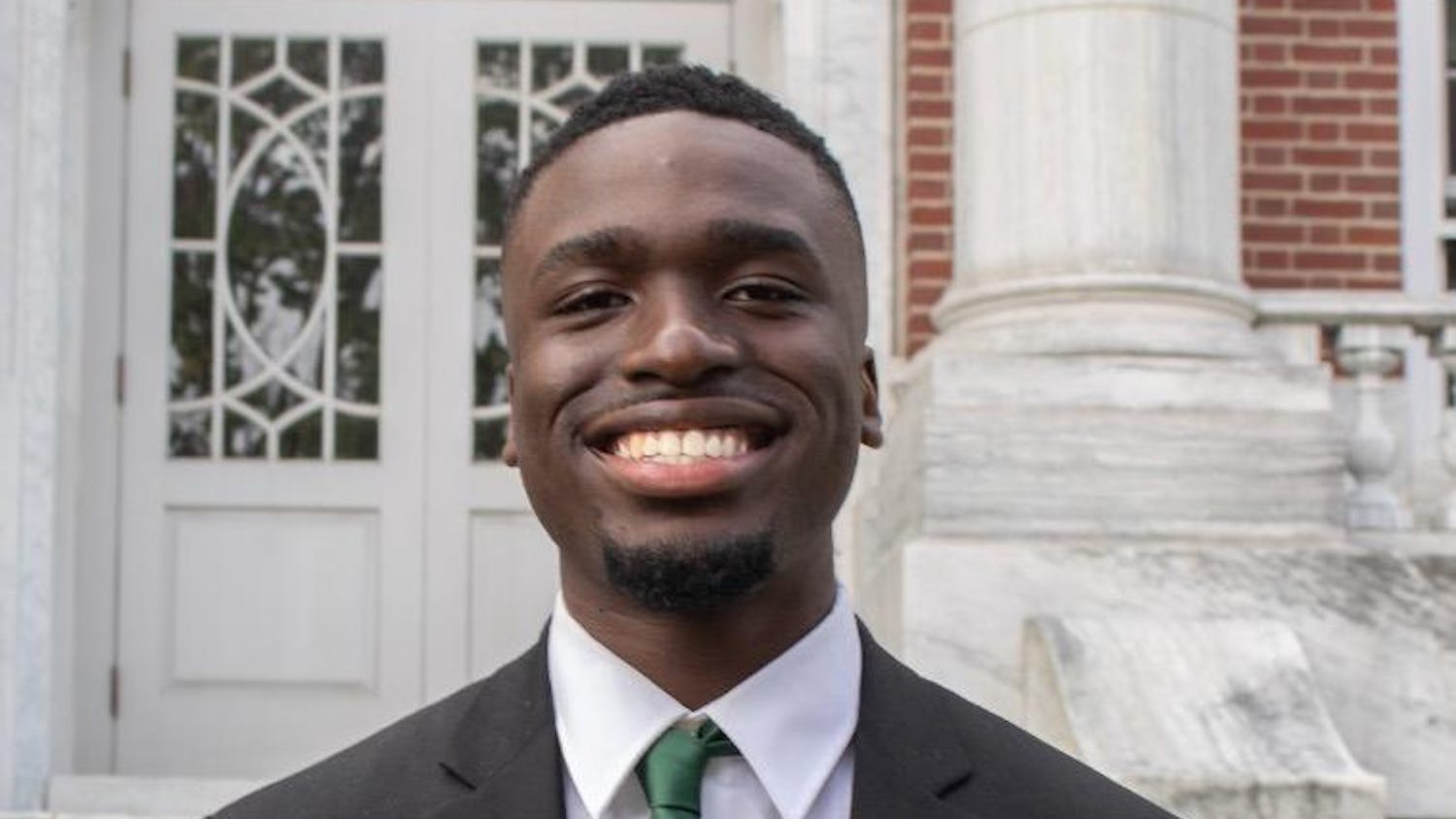Tufts was one of five colleges and universities that received this year’s national New York Life Higher Education Civic Engagement Award, along with $20,000 worth of scholarships in an internship program. University President Anthony Monaco and Alan Solomont (A'70), the dean of Tisch College of Citizenship and Public Service, were in Washington, D.C.last Monday to receive the award at a luncheon at The Washington Center and the New York Life Foundation. The Dominican University of California, John Carroll University, Rutgers University–Camden and Weber State University were also among this year's recipients.
The award was given by The Washington Center for Internships and Academic Seminars, which “recognize[s] institutions achieving breadth and depth of civic engagement through sustained and mutually transformational partnerships that define and address issues of public concern,” according to the organization's website. The award was established in partnership with New York Life Foundation, according to an Oct. 5 press release from The Washington Center. The New York Life Foundation, according to its website, gives grants to nonprofit organizations.
According to the center's website, the organization is a non-profit that "provides internships, academic seminars and internship placements in major private, public and nonprofit sectors in Washington, D.C."
In the Oct. 5 release, President of The Washington CenterMike Smith spoke highly of Tufts' commitment to civic duties.
“Tufts University is a shining example of how universities are taking the traditional curriculum model and incorporating initiatives that teach self-awareness, community engagement and lifelong leadership skills,” Smith said in the release.
Tufts will receive $20,000 worth of scholarships for The Washington Center’s Academic Internship Program as its award, according to The Washington Center’s website.
Alan Grose, the senior director of academic affairs at The Washington Center, said students who participate in the internship program spend a semester in D.C. interning full-time and taking one upper-level academic course, typically an elective.
“It’s an academic semester that is built around an internship,” Grose said.
Grose said The Washington Center's internship program has much to offer students interested in political and civic life, including tracks in politics and public policy, law and criminal justice, international affairs and media and communication.
“Just living in Washington, D.C. is a learning experience in and of itself,” he said. “It’s a pretty global city, as well as a city for major policy debates and [the] political arena.”
Solomont said Tisch College is considering sending students to the Center's Academic Internship Program in the future.
“Tisch is interested in looking at what opportunities there are for Tufts students to spend time in Washington," he said. "I don’t believe we have participated in The Washington Center’s program [in the past], but we’re looking at whether there is interest."
Solomont explained that when Tufts applied for the award, it highlighted its involvement with the Community Assessment of Freeway Exposure and Health (CAFEH), a program that researches the health impacts of air pollution in the Boston area, as an example of its role in civic engagement.
“There were groups in both Somerville and Chinatown who were concerned about the health impact of living near [interstate] 93," he said. "Through the [Tufts Community Research Center], we brought them together with a faculty member from the Medical School, Doug Brugge, and he led [CAFEH]."
Solomont added that while Tufts supplied the seed funding for the CAFEH initiative, the National Institutes of Health (NIH) has since provided more than $6 million in additional funding. Over 20 peer-reviewed articles have been produced as a result of CAFEH, according to The Washington Center’s website.
However, Solomont said Tufts was not selected for the national honor solely because of CAFEH's success.
“I’d like to believe that we succeeded [not only] on the strength of...this one initiative, but also on the strength of our overall commitment to civic engagement,” he said.
Solomont explained that another example of Tufts' civic engagement is the 1+4 Bridge-Year Service Learning Program, through which some students accepted into the Class of 2019 are now embarking on a year of community service before they begin their first year at Tufts next fall.
“It wasn’t until I met the first group of fellows this summer, when they came to campus for orientation, that I understood how this initiative is really going to change people’s lives,” he said.
Solomont said the 1+4 program is indicative of Tufts’ commitment to instilling civic values as part of its educational mission.
“When I was an undergraduate, my life changed as a result of my Tufts education, and we want to contribute to that kind of positive change in the education of all Tufts students,” he said. “1+4, I think, is going to do that.”
The 1+4 program fellows will return to campus after their year of community service with new insights, knowledge and perspectives that will strengthen their academic studies and the Tufts community, Solomont told the Daily in a Sept. 16 article.
Deb Jospin, a member and outgoing chair of the Tisch College Board of Advisers, spoke highly of Tisch College’s role in the university’s civic engagement.
“Tisch College amplifies the active citizenship of all members of the Tufts community,” she told the Daily in an email. “[This award] challenges us to continue to strengthen Tisch College’s impact and leadership role.”
Solomont added that while Tisch College and the university are honored to receive the award, their work is not driven by such recognition.
“It’s nice to get an award…but that’s just sort of icing on the cake,” he said. “The real work we do every day here, without the need for awards, but with really believing in what an important mission we have.”
Tufts among five recipients of Higher Education Civic Engagement Award

Dean Alan D. Solomont, second from left, and President Anthony Monaco, third from right, traveled to D.C. to accept the 2015 Higher Education Civic Engagement Award.





